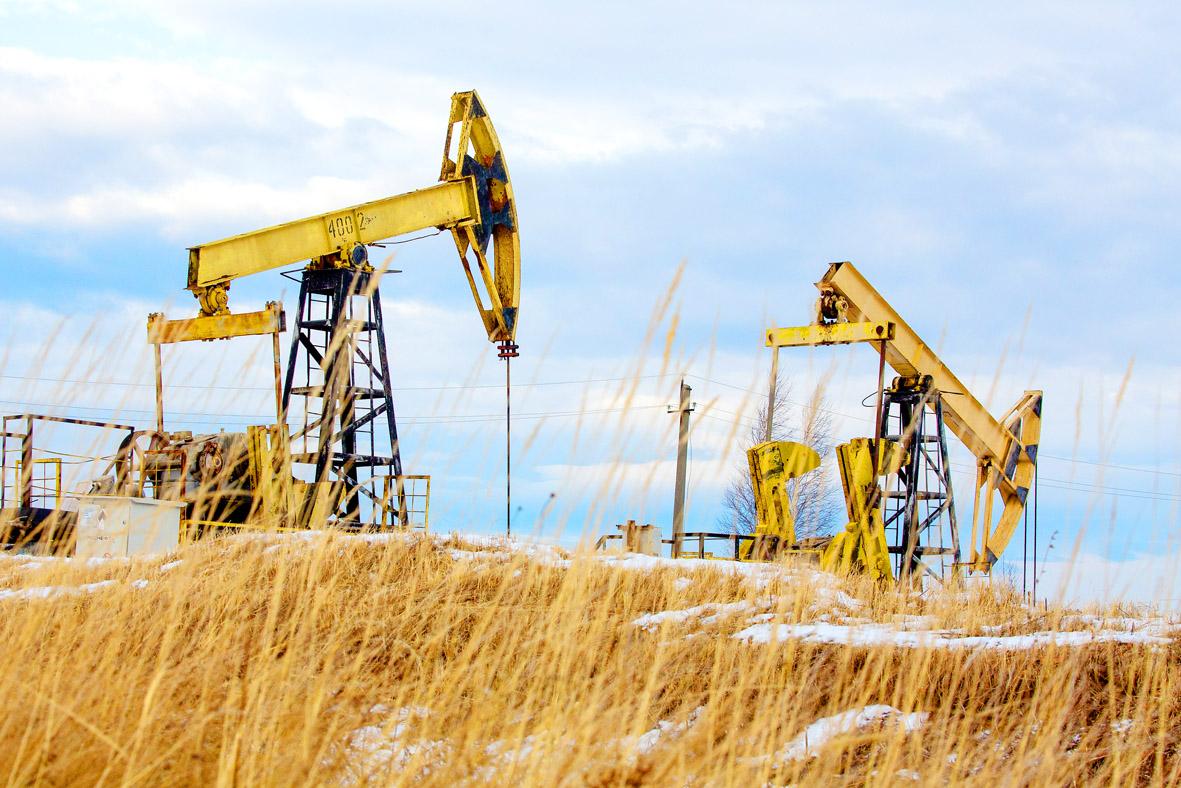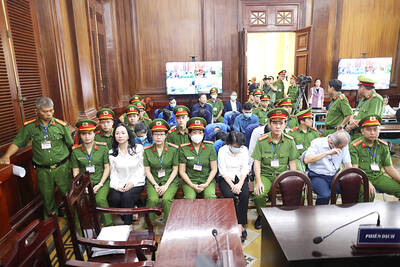Russian oil giant Rosneft on Wednesday announced the start of operations for its giant Vostok oil project in the arctic, part of the country’s strategic energy plan which has been criticized by environmentalists.
“It is with great pleasure that I inform you of the start of the practical implementation of the project,” Rosneft chief executive Igor Sechin told Russian President Vladimir Putin at a meeting in Moscow.
He thanked Putin, with whom he has close relations, for the adoption of a law facilitating Russian investments in the arctic.

Photo: Bloomberg
“The prospecting and exploration work are now underway, in accordance with our timetable,” Sechin said, adding that the design work for a 770km oil pipeline and a port had been completed.
The strategic plan for Russia’s mineral resources stretches to 2035 and is banking on growing global demand, although it does predict that natural gas will partially replace oil and coal.
“Mineral resources will remain a competitive advantage of Russia’s economy, and will determine the place and role of the country in the world,” it says.
Environmentalists last year urged the Russian government to stop granting licenses to exploit several arctic deposits.
The Vostok project, the cornerstone of Russia’s arctic ambitions, brings together several Rosneft activities in the Russian Far North, near the northern sea route that the company intends to exploit to deliver to Europe and Asia.
In February, Sechin promised Putin that the scheme would create a “new oil and gas province” on Siberia’s Taymyr Peninsula, the northernmost part of the Asian continent.
The complete project would represent a total investment of 10,000 billion rubles (US$132.2 billion), including two airports and 15 “industry towns.”
The project has also been forecast to create 130,000 jobs and allow access to estimated reserves of about 5 billion tonnes of oil.
The construction alone would require 400,000 workers, Sechin said.
Last week, Rosneft announced the sale of 10 percent of the project to Singapore’s Trafigura Group, without mentioning a price. The Russian group had previously said that there was interest in the project from India.
The arctic endeavor would eventually produce 100 million tonnes of oil per year, Sechin said.
From now to 2024, 30 million tonnes would be sent from the arctic along the so-called Northern Sea route connecting the Atlantic Ocean to the Pacific, he said.

Republican US lawmakers on Friday criticized US President Joe Biden’s administration after sanctioned Chinese telecoms equipment giant Huawei unveiled a laptop this week powered by an Intel artificial intelligence (AI) chip. The US placed Huawei on a trade restriction list in 2019 for contravening Iran sanctions, part of a broader effort to hobble Beijing’s technological advances. Placement on the list means the company’s suppliers have to seek a special, difficult-to-obtain license before shipping to it. One such license, issued by then-US president Donald Trump’s administration, has allowed Intel to ship central processors to Huawei for use in laptops since 2020. China hardliners

A top Vietnamese property tycoon was on Thursday sentenced to death in one of the biggest corruption cases in history, with an estimated US$27 billion in damages. A panel of three hand-picked jurors and two judges rejected all defense arguments by Truong My Lan, chair of major developer Van Thinh Phat, who was found guilty of swindling cash from Saigon Commercial Bank (SCB) over a decade. “The defendant’s actions ... eroded people’s trust in the leadership of the [Communist] Party and state,” read the verdict at the trial in Ho Chi Minh City. After the five-week trial, 85 others were also sentenced on

‘DELUSIONAL’: Targeting the families of Hamas’ leaders would not push the group to change its position or to give up its demands for Palestinians, Ismail Haniyeh said Israeli aircraft on Wednesday killed three sons of Hamas’ top political leader in the Gaza Strip, striking high-stakes targets at a time when Israel is holding delicate ceasefire negotiations with the militant group. Hamas said four of the leader’s grandchildren were also killed. Ismail Haniyeh’s sons are among the highest-profile figures to be killed in the war so far. Israel said they were Hamas operatives, and Haniyeh accused Israel of acting in “the spirit of revenge and murder.” The deaths threatened to strain the internationally mediated ceasefire talks, which appeared to gain steam in recent days even as the sides remain far

RAMPAGE: A Palestinian man was left dead after dozens of Israeli settlers searching for a missing 14-year-old boy stormed a village in the Israeli-occupied West Bank US President Joe Biden on Friday said he expected Iran to attack Israel “sooner, rather than later” and warned Tehran not to proceed. Asked by reporters about his message to Iran, Biden simply said: “Don’t,” underscoring Washington’s commitment to defend Israel. “We are devoted to the defense of Israel. We will support Israel. We will help defend Israel and Iran will not succeed,” he said. Biden said he would not divulge secure information, but said his expectation was that an attack could come “sooner, rather than later.” Israel braced on Friday for an attack by Iran or its proxies as warnings grew of